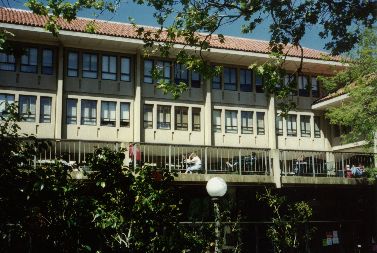|
|
  iMahal Interview Series:
iMahal Interview Series:
Joanne Martin
May 4, 2001
iMahal:
Our readers would also be interested to learn about the process of academic research. How you typically get and execute each research project? And how do you find out whether your research is considered to be adding to your success as a researcher?
 Joanne:
Good questions, and ones I don't usually get asked. There are at least two ways research projects start for me. An interesting organization or intriguing leader may cross my path, and I will think, "I would like to study the way that firm operates: it seems unusual, or directly relevant to a theoretical puzzle that has been troubling researchers in my field." Alternatively, I sometimes start with a theoretical puzzle and then seek the best data source and method to explore it. I use all methods: laborative experiments, qualitative studies in field settings (like an anthropologist), questionnaires, statistical analysis of archival data banks -- whatever method is most appropriate for the question I am asking. This is not the norm; most researchers specialize in one method or two.
Joanne:
Good questions, and ones I don't usually get asked. There are at least two ways research projects start for me. An interesting organization or intriguing leader may cross my path, and I will think, "I would like to study the way that firm operates: it seems unusual, or directly relevant to a theoretical puzzle that has been troubling researchers in my field." Alternatively, I sometimes start with a theoretical puzzle and then seek the best data source and method to explore it. I use all methods: laborative experiments, qualitative studies in field settings (like an anthropologist), questionnaires, statistical analysis of archival data banks -- whatever method is most appropriate for the question I am asking. This is not the norm; most researchers specialize in one method or two.
Professors can tell if a research project is adding to success as a researcher if, when we talk about the project at conferences, lots of listeners say they want to know more about it. Another measure of success is the reaction to a published version of the work: requests for copies, sales of books, and citations by other researchers. Sometimes, when we are very fortunate, we might receive an award for a particular paper, or even an honorary doctorate for research contributions. The best way, though, to tell if a research project is good is to trust our own judgment, since innovative research often takes time to attract acclaim.


 iMahal:
You have an endowed chair called the Fred H. Merrill Professor of Organizational Behavior. This sounds impressive, but could you explain a few things about it? For example, what is an endowed chair and who is Fred Merrill? How much money did this Mr. Merrill donate to the business school to get this endowed chair named after him?
iMahal:
You have an endowed chair called the Fred H. Merrill Professor of Organizational Behavior. This sounds impressive, but could you explain a few things about it? For example, what is an endowed chair and who is Fred Merrill? How much money did this Mr. Merrill donate to the business school to get this endowed chair named after him?
 Joanne:
Because tenure is usually awarded (or not) seven years after the PhD, an endowed chair is the only way the school can honor a professor who continues to produce outstanding research in the long years after tenure. Such chairs are often crucial to keeping the best tenured professors at Stanford. A chair is created by a donor with an endowment that funds the position in perpetuity. The cost of endowing a chair is basically the amount of money it takes so that the yearly interest on it will pay most of the salary for a professor. I feel very fortunate to have an endowed chair. The one I hold was donated, some years ago, by Mr. Merrill, who was President and Chairman of the Board of the Fireman's Fund Insurance Company, as well as a member of the Board of Directors of a number of other corporations in the US and abroad. He also served as a Stanford trustee. When I retire, or leave, the chair will be given to some other faculty member, so its contribution to the school endures.
Joanne:
Because tenure is usually awarded (or not) seven years after the PhD, an endowed chair is the only way the school can honor a professor who continues to produce outstanding research in the long years after tenure. Such chairs are often crucial to keeping the best tenured professors at Stanford. A chair is created by a donor with an endowment that funds the position in perpetuity. The cost of endowing a chair is basically the amount of money it takes so that the yearly interest on it will pay most of the salary for a professor. I feel very fortunate to have an endowed chair. The one I hold was donated, some years ago, by Mr. Merrill, who was President and Chairman of the Board of the Fireman's Fund Insurance Company, as well as a member of the Board of Directors of a number of other corporations in the US and abroad. He also served as a Stanford trustee. When I retire, or leave, the chair will be given to some other faculty member, so its contribution to the school endures.

 

|
 |



